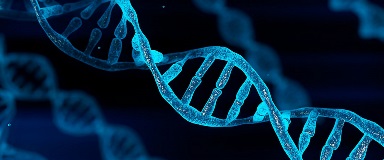Novel approach helps MOHCCN Clinician-Scientist uncover rare cancer cells responsible for driving tumour growth in breast cancer models

Advances in cancer treatment are leading to increased survival and cure rates for many cancers. But patients know all-to-well that some cancers manage to evade treatment altogether, while others go dormant and return many years later—causing major challenges.
This occurs, at least in part, because certain cancer cells can change their identity and behaviour, a phenomenon known as plasticity. This allows them to evade treatment and seed the growth of new or existing tumours. To cure a cancer, these special cells – called clonogenic cells – must be fully eliminated. But finding and studying these key cells has been challenging—until now.
In a new study published in Cell Reports, a research team led by MOHCCN Clinician-Scientist Award holder, Dr. Long V. Nguyen (University Health Network - Princess Margaret Cancer Centre), has revealed how a novel approach allowed them to uncover a rare type of clonogenic cell that drives tumour growth in breast cancer. This finding sheds new light on how these clonogenic cells work and could lead to the creation of therapies that directly target them.
A novel approach
The team used a new technique that involves adding unique DNA tags to individual cancer cells, allowing them to track their descendants as the cells multiplied. Using this method along with advanced single-cell sequencing techniques, they studied over 20,000 individual breast cancer cell clones from 26 patient-derived breast cancer laboratory models.
By tracking these barcoded cells as they divided, the team discovered that fewer than 0.01 per cent of clones were able to regrow tumours. These rare clones divided rapidly and expanded to become the dominant cell type.
In models of basal breast cancer—an aggressive subtype—the tumour-propagating clones showed high plasticity, changing their function and gene activity. The team also identified two distinct cell populations with different clonal growth behaviours and biological features. These results show that propagating clones have the ability to evolve, adapt and grow into dominant clones that eventually become the majority, all originating from a single barcoded cell.
These findings deepen our understanding of how cancers evolve and resist treatment. This work could lead to therapies that better target these tumour-driving clones, with the approach used here potentially applicable to other solid cancers.
This story was prepared based on a press release provided by the Princess Margaret Cancer Centre.
Study
Fitness and transcriptional plasticity of human breast cancer single-cell-derived clones. Cell Rep. 2025 May 27;44(5):115699. doi: 10.1016/j.celrep.2025.115699. Epub 2025 May 12.
Authors
Nguyen LV, Eyal-Lubling Y, Guerrero-Romero D, Kronheim S, Chin SF, Manzano Garcia R, Sammut SJ, Lerda G, Lui AJW, Bardwell HA, Greenwood W, Shin HJ, Masina R, Kania K, Bruna A, Esmaeilishirazifard E, Kolyvas EA, Aparicio S, Rueda OM, Caldas C.
Funding
This study was partially funded by an MOHCCN Clinicians-Scientist Award to Dr. Long V. Nguyen.
This finding sheds new light on how these clonogenic cells work and could lead to the creation of therapies that directly target them.
Related Team Member
-
Long
Researcher
Nguyen
Related Project
-
Regional Consortia
Ontario Cancer Consortium
- Ontario
The Ontario Cancer Consortium coalesces the expertise and efforts of clinicians, pathologists, software developers and data and translational scientists to help accelerate precision medicine for cance...Read more
Related News
-

Precision medicine should be first-line treatment for metastatic pancreatic cancer, study finds
A new clinical trial comparing the efficacy of two treatments commonly used on patients with metastatic pancreatic cancer has shed new light on the importance of using genomic sequencing to inform car... -

Atlantic Cancer Consortium leadership and members share updates with the Network
The presentation was part of MOHCCN Seminar Series, which features virtual talks from MOHCCN research partner investigators and trainees, providing a platform for MOHCCN members to share their ongoing... -

Prairie Cancer Consortium leadership and members share updates with the Network
The presentation was part of MOHCCN Seminar Series, which features virtual talks from MOHCCN research partner investigators and trainees, providing a platform for MOHCCN members to share their ongoing... -

Marathon of Hope – Québec consortium leadership and members share updates with the Network
The presentation was part of MOHCCN Seminar Series, which features virtual talks from MOHCCN research partner investigators and trainees, providing a platform for MOHCCN members to share their ongoing...














